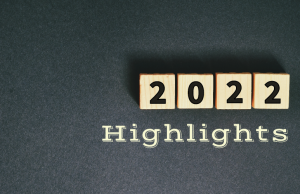The United States has crept up one spot, to 18th, on the 2017 Social Progress Index. The improvement fails to express, however, the U.S.’s consistent underperformance relative to its gross domestic product (GDP), according to Michael Green, CEO of the Social Progress Imperative (SPI), creator of the index.
The U.S., owner of the greatest GDP in the world per the World Bank, underperforms relative to its wealth unlike any other G7 nation with the recent exception of France, Green said. It’s a result of decades of underinvestment.
Despite seeing its overall score increase from 84.62 in 2016 to 86.43 in 2017, the U.S. still ranks comparatively low in areas such as nutrition and basic healthcare (36th), environmental quality (33rd), access to basic knowledge (30th), water and sanitation (27th), and tolerance and inclusion (23rd), according to this year’s index.
Tolerance and inclusion is a category that Green is noticing fluctuations in both in North America and Central Europe. Measured by indicators such as reports of discriminatory actions and public-opinion surveys, tolerance and inclusion would seem to be an area in which a developed nation such as the U.S. would score well, Green said, and it is unclear whether recent politics have driven such behaviors or whether such behaviors have driven recent politics.
The U.S. performed poorly in religious tolerance (92nd), but also in civic networks and ties (31st). Green noted that terrorist actions could explain overall religious intolerance in North America as Canada ranks 54th in religious tolerance despite being overall the fifth most tolerant nation in the world — a disparity that Green said he was unable to explain.
Green sees a similar divide in Europe between relatively newer states like Poland and Hungary and their older, northern counterparts such as Denmark and Finland. Populist governments have led to low tolerance rankings in Hungary (62nd) and Poland (64th), driven by rankings of tolerance toward immigrants of 120th and 127th, respectively. Green pointed to the animosity toward the refugee crisis and wider, national rhetoric as cause for the low rankings.
“It’s quite hard,” Green said when asked how tolerance and inclusion may be improved. “Maybe this is something where learning between countries is going to be important.” Creating tolerance in Iceland, for instance, is a different task than creating tolerance in India. Green also voice a hope that the index can help find solutions and define ways to track progress.
More generally, while tolerance has improved or deteriorated dramatically from country to country and personal rights suffer in authoritarian regimes such as Turkey and Russia, the average index scored increased from 62.88 in 2016 to 64.85 in 2017. If the world was a country, it would rank 80th — the same as last year — between Indonesia and Botswana.
Green attributed overall progress to increased access to communication and advanced knowledge. Countries such as Myanmar are big gainers because of the increased availability of mobile phones, the internet and, to a lesser extent, access of the press. The expanding range of globally ranked universities has similarly cast a wider net of opportunity for more individuals in more countries. Access to communication and knowledge are two areas where nations can see rapid growth via increased access as compared to categories such as health – which is tied to life expectancy and thus sees more incremental change.
This year’s SPI index also shows improvements at the very top, with five countries topping 90 points after Finland was the only one to do so in 2016. Additionally, 14 countries are categorized as having “very good” social progress in 2017, up from 12 last year. They are:
1. Denmark, 90.57 (3rd last year)
2. Finland, 90.53 (1st)
3 (tie). Iceland, 90.27 (10th)
3 (tie). Norway, 90.27 (7th)
5. Switzerland, 90.10 (5th)
6. Canada, 89.84 (2nd)
7. Netherlands, 89.82 (8th)
8. Sweden, 89.66 (6th)
9 (tie). Australia, 89.30 (4th)
9 (tie). New Zealand, 89.30 (10th)
11. Ireland, 88.91 (12th)
12. United Kingdom, 88.73 (9th)
13. Germany, 88.50 (15th)
14. Austria, 87.98 (13th)
While improved scores at the very top are a positive, Green voiced a concern that top 20 nations such as the U.S., U.K. and France (19th) have flat-lined in terms of progress. Notable exceptions of top nations that continue to climb include Norway, Spain (16th), and Japan (17th), he said.
In the year ahead, Green said that he will look toward nations that have greatly over-performed on social progress as it relates to GDP. Nepal, which ranks 104th in GDP per World Bank but 91st on the index, is one interesting case, Green said, as the nation was in conflict not many years ago. Today, however, national leadership has come together toward a unified purpose – a predictor of success.
“What we hear about countries [that underperform] is hostile social progress agendas like Hungary or countries that can’t get their act together and do things – I think the U.S falls into that category,” Green said. “The federal government has struggled to get anything done the last couple of decades and this is the way that decision making is hostage to partisan politics.”












